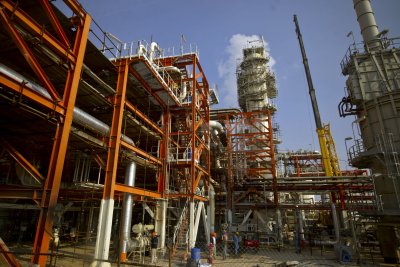Supreme Court doesn’t rule on Louisiana’s second majority Black congressional district
WASHINGTON — The Supreme Court on Friday put off ruling on a second Black majority congressional district in Louisiana, instead ordering new arguments in the fall.
The case is being closely watched because at arguments in March several of the court’s conservative justices suggested they could vote to throw out the map and make it harder, if not impossible, to bring redistricting lawsuits under the Voting Rights Act.
The case involves the interplay between race and politics in drawing political boundaries in front of a conservative-led court that has been skeptical of considerations of race in public life.
Justice Clarence Thomas noted in a brief dissent from Friday’s order that he would have decided the case now and imposed limits on “race-based redistricting.”
The order keeps alive a fight over political power stemming from the 2020 census halfway to the next one. Two maps were blocked by lower courts, and the Supreme Court intervened twice. Last year, the justices ordered the new map to be used in the 2024 elections, while the legal case proceeded.
The call for new arguments probably means that the district currently represented by Democratic Rep. Cleo Fields probably will remain intact for the 2026 elections because the high court has separately been reluctant to upend districts as elections draw near.
The state has changed its election process to replace its so-called jungle primary with partisan primary elections in the spring, followed by a November showdown between the party nominees.
The change means candidates can start gathering signatures in September to get on the primary ballot for 2026.
The state’s Republican-dominated legislature drew a new congressional map in 2022 to account for population shifts reflected in the 2020 census. But the changes effectively maintained the status quo of five Republican-leaning majority white districts and one Democratic-leaning majority Black district in a state in which Black people make up a third of the population.
Civil rights advocates won a lower-court ruling that the districts likely discriminated against Black voters.
The Supreme Court put the ruling on hold while it took a similar case from Alabama. The justices allowed both states to use congressional maps in the 2022 elections even though both had been ruled likely discriminatory by federal judges.
The high court eventually affirmed the ruling from Alabama, which led to a new map and a second district that could elect a Black lawmaker. The justices returned the Louisiana case to federal court, with the expectation that new maps would be in place for the 2024 elections.
The 5th U.S. Circuit Court of Appeals gave lawmakers in Louisiana a deadline of early 2024 to draw a new map or face the possibility of a court-imposed map.
The state complied and drew a new map, with two Black majority districts.
But white Louisiana voters claimed in their separate lawsuit challenging the new districts that race was the predominant factor driving the new map. A three-judge court agreed.
Louisiana appealed that ruling to the Supreme Court.


